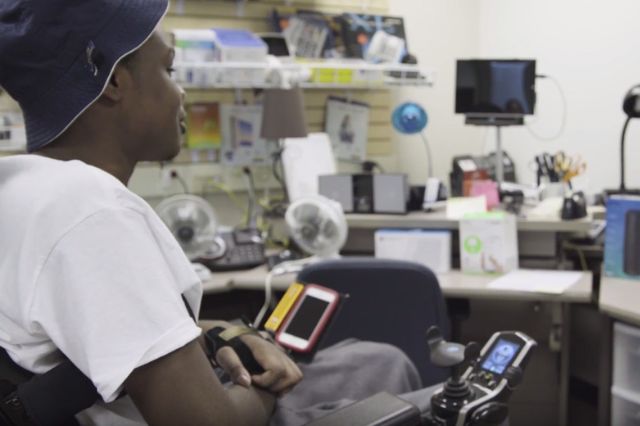Hospital Price Transparency
As a not-for-profit hospital, Shepherd Center does not have shareholders, and no funds flow to private individuals as might occur in a for-profit, shareholder or privately owned corporation. Rather, at Shepherd, all earnings flow back to the hospital, so we can provide more and better medical care for you and your family.
It is part of Shepherd Center’s mission to provide these services without regard for a patient’s ability to pay. We provide financial assistance in many forms, from working with patients and families on qualifying for Medicaid or Medicare, providing charity care, and providing substantial self-pay discounts to patients with the ability to pay, but having no insurance coverage.
The federal government requires all hospitals to provide a chargemaster, or list of charges for services and items for patients, in a “machine-readable format” (XML file). Shepherd Center’s list is available as downloadable file below.
However, it is important to note that charges by Shepherd Center, and other hospitals, evolve over time in response to varying and complex reimbursement methods and structures imposed by Medicare and Medicaid or negotiated with commercial insurers. What Shepherd Center is ultimately paid varies greatly by payer and is significantly discounted from charges listed on the downloadable file below. In many instances, Shepherd Center is paid a flat rate per day (a “per diem”) regardless of the charges or underlying cost of care. With Medicare, Medicaid and some commercial insurers, reimbursement doesn’t cover the cost of care.
Hospitals are also required to post a list of their Diagnosis-Related Groups (DRGs), a classification structure that both Medicare and Medicaid use to pay hospitals according to the patient’s severity of illness, intensity of treatment, length of stay and other variables. Given the catastrophic injuries and illnesses of patients Shepherd Center treats and the extreme variability in their medical treatment needs, readers viewing the downloadable file below can see the large variance in Shepherd Center’s minimum charges, maximum charges and average charges incurred in the past year.
- Download Shepherd Center's DRG file in XML format (Right-click to save the page as the XML file)
- Download Shepherd Center's chargemaster file in XML format (Right-click to save the page as the XML file)
Note that this list does not include services or items provided by physicians who work independently at Shepherd Center. This includes private practice physicians, radiologists, and consulting physicians. - Download Shepherd Center's charges file with comparative payer information in Microsoft Excel (CSV) format
Note that this list does not include services or items provided by physicians who work independently at Shepherd Center. This includes private practice physicians, radiologists, and consulting physicians. Also note that not all contract terms are present on the comparative schedules, only those required by law.
If you have questions, please contact one of Shepherd Center’s financial counselors at 404-350-7323.
Your Rights and Protections Against Surprise Medical Bills
When you get emergency care or get treated by an out-of-network provider at an in-network hospital or ambulatory surgical center, you are protected from surprise billing or balance billing.
What is “balance billing” (sometimes called “surprise billing”)?
When you see a doctor or other health care provider, you may owe certain out-of-pocket costs, such as a copayment, coinsurance, and/or a deductible. You may have other costs or owe the entire bill if you see a provider or visit a facility that isn’t in your health plan’s network.
“Out-of-network” describes providers and facilities that haven’t signed a contract with your health plan. Out-of-network providers may be permitted to bill you for the difference between what your plan agreed to pay, and the full amount charged for a service. This is called “balance billing. This amount is likely more than in-network costs for the same service and might not count toward your annual out-of-pocket limit.
“Surprise billing” is an unexpected balance bill. This can happen when you can’t control who is involved in your care—like when you have an emergency or when you schedule a visit at an in-network facility but are unexpectedly treated by an out-of-network provider.
You are protected from balance billing for:
Emergency services
If you have an emergency medical condition and get emergency services from an out-of-network provider or facility, the most the provider or facility may bill you is your plan in-network cost-sharing amount (copayments and coinsurance). You can’t be balance billed for emergency services. This includes services you may get after you’re in stable condition unless you give written consent and give up your protections not to be balanced billed for these post-stabilization services.
Certain services at an in-network hospital or ambulatory surgical center
When you get service from an in-network hospital or ambulatory surgical center, certain providers there may be out-of-network. The most those providers may bill you is your plan’s in-network cost-sharing amount. This applies to emergency medicine, anesthesia, pathology, radiology, laboratory, neonatology, assistant surgeon, hospitalist, or intensivist services. These providers can’t balance bill you and may not ask you to give up your protections not to be balance billed.
If you get other services at these in-network facilities, out-of-network providers can’t balance bill you, unless you give written consent and give up your protections.
You’re never required to give up your protection from balance billing. You also aren’t required to get care out-of-network. You can choose a provider or facility in your plan’s network.
Georgia Law includes plans licensed by the GA Commissioner of Insurance office, including fully insured managed care plans, HMOs, qualified health plans, Exchange plans, high deductible plans, and stand-alone dental and vision plans, state healthcare plans, including the Georgia State Health Benefit Plan, public school teachers and employees and Board of Regents plans. The GA Act does not apply to Medicaid managed care plans or care management organizations, limited benefit plans, air ambulance insurance, supplemental plans, Medicare plans, workers’ compensation or plans governed by the Employee Retirement Income Security Act of 1974, 29 U.S.C. Sec. 1001, et seq (ERISA). Insurers are required to note on the remittance advice whether coverage is subject to the exclusive jurisdiction of ERISA.
What kinds of services and bills are subject to the GA Act? Emergency Services – Insurers must pay for covered emergency medical services for covered persons regardless of network participation of the providers or facilities, without prior authorization and without retrospective denial of services deemed medically necessary. Non-Emergency Services – If charges arise from a covered person receiving non-emergency services from an out-of-network provider at an in-network facility, this is considered a “surprise bill,” and insurers must pay for covered services regardless of network participation of the provider.
When balance billing isn’t allowed, you also have the following protections:
- You are only responsible for paying your share of the cost (like the copayments, coinsurance, and deductibles that you would pay if the provider or facility was in-network). Your health plan will pay out-of-network providers and facilities directly.
- Your health plan generally must:
- Cover emergency services without requiring you to get approval for services in advance (prior authorization).
- Cover emergency services by out-of-network providers.
- Base what you owe the provider or facility (cost-sharing) on what it would pay an in-network provider or facility and show that amount in your explanation of benefits.
- Count any amount you pay for emergency services or out-of-network services toward your deductible and out-of-pocket limit.
If you believe you’ve been wrongly billed, you may first contact compliance@shepherd.org or your health plan for an explanation. If they can’t resolve your concerns, you can contact the Georgia Office of the Commissioner of Insurance and Safety Fire online at https://oci.georgia.gov/ or by phone at 404-656-2070.
Visit the Centers for Medicare and Medicaid Services website for more information about your rights under federal law. Visit File a Complaint | Georgia Office of Insurance and Safety Fire Commissioner for more information about your rights under Georgia Law.
Patient Cost Estimator
Separate from this, Shepherd Center has provided a Patient Cost Estimator tool to provide you with an estimate of the cost that you may incur for some of the more common services provided at Shepherd Center.




